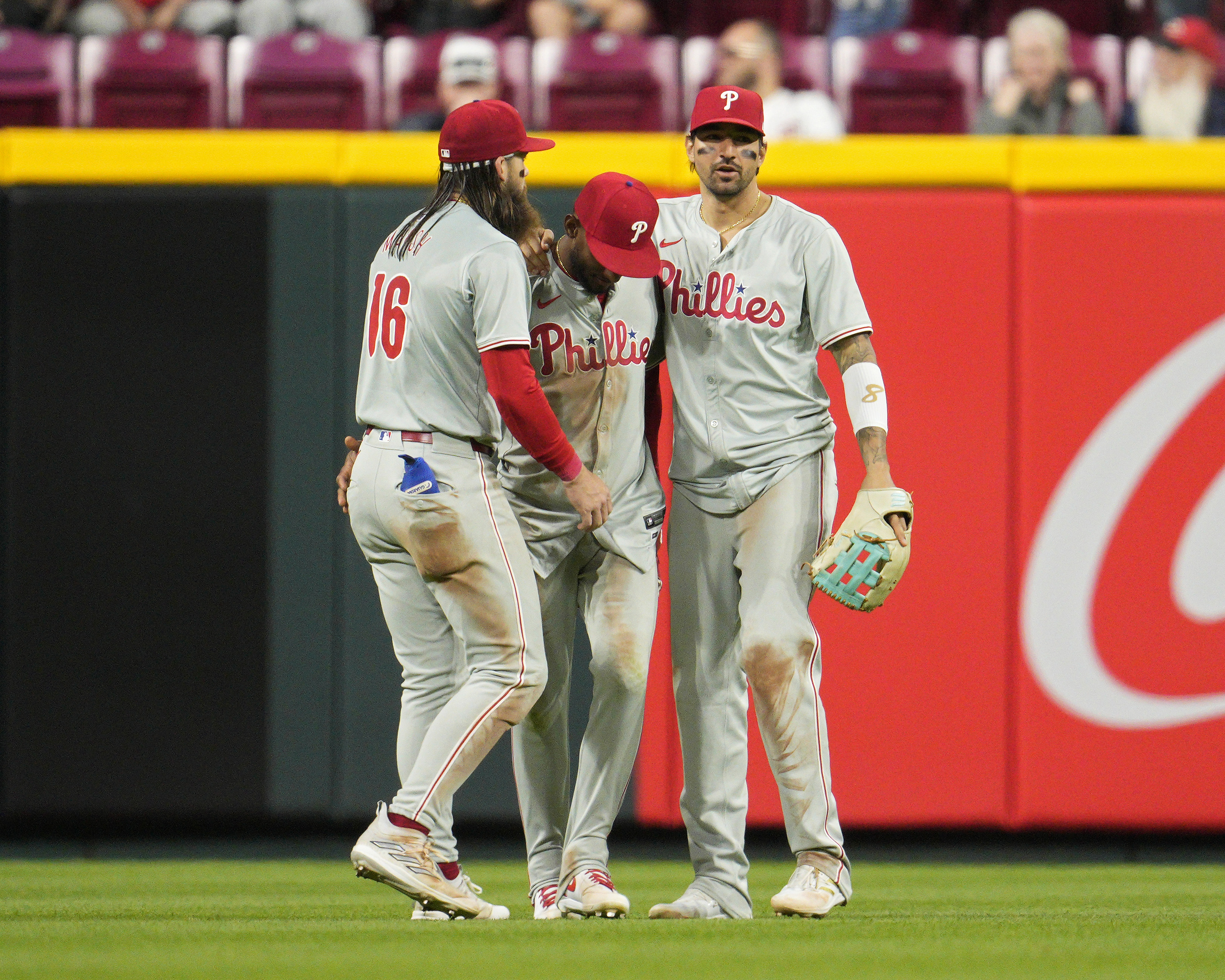It feels like the Phillies have struck out a billion times this season.
The actual number is 747. Third-most in the majors, ahead of only the Rangers and Padres. The Phils have struck out 72 more times than the league average.
The strikeouts are glaring on nights the Phillies struggle to score, nights like Monday and Tuesday against the Yankees.
The question is: Are the K's actually harming the Phils as much as the raw number indicates? Obviously, strikeouts are boring for fans to watch and are unproductive outs. But a strikeout with nobody on base is nearly the same thing as a groundout to shortstop, with the word "nearly" only used there because of the very small chance of an error.
Runners in scoring position
The Phillies have struck out in 24.2 percent of their plate appearances with runners in scoring position this season. It's the fifth-highest rate in the majors.
There's one big "however," though.
Philadelphia Phillies
Complete coverage of the Fightin' Phils and their MLB rivals from NBC Sports Philadelphia.
The Phils also have the second-highest walk rate with runners in scoring position. As a result, their .353 OBP with RISP is fourth-best in the majors and their .785 OPS is fifth. They also rank in the top 10 in runs driven in with runners in scoring position and have just 10 fewer than the Yankees.
You only draw walks by running deep counts. When running deep counts, strikeouts also become more likely. So, yes, the Phillies have struck out a lot in these key situations, but I'd argue the impact hasn't been as drastic as you might think given their other successes with RISP.
Men on third, less than two outs
This is the clearest type of situation when a strikeout kills you. And you know what? The Phillies actually have the sixth-fewest K's with a runner on third and less than two outs.
In those situations, the Phils have hit .367 and driven in 99 runs in 148 plate appearances. That, too, ranks in the top 10 in terms of success rate.
High-leverage situations
In high-leverage situations, the Phillies' strikeout rate is smack-dab in the middle of the pack, 15th in the majors and right on par with teams like the Cubs and Brewers.
Men on first, less than two outs
Advancing a runner from first with less than two outs is meaningful. It also requires a specific type of out - a deep fly ball or a softly hit ground ball.
With men on first and less than two outs, the Phillies have struck out 81 times, which is seventh-most in baseball.
Psychological impact
There's an outside-the-lines factor at play here and that's how much the strikeouts can demoralize the fan base. If you don't believe that, just take a look at Twitter or the comments section of any Phillies post on this site after a loss.
The Phillies struck out 15 times on Monday and 10 more times on Tuesday.
They've had six games already this season with 15 or more K's. In no other year in franchise history have the Phillies done that more than four times. And there are 85 games still to play.
They also have three more games with double-digit strikeouts (39) than any NL team this season.
The Phillies are on pace to strike out 135 more times than any year in team history. This after setting new franchise records each of the last two seasons.
In conclusion
They've swung and missed a ton. It's frustrating and at times boring to watch. It adds a lot of inactivity to games.
But it's tough to look at any of this data and suggest the Phillies would be in a much different position whatsoever if they were grounding out or flying out instead of striking out, specifically because the majority of those K's have come in spots when there wasn't much opportunity of making a productive out.
Not suggesting that it's OK they're striking out this much. It's not, and any team would prefer to be making more contact than less. It's just that it hasn't really affected their run-scoring chances as much as you might think.



